Interview by Anjum Choudhry Nayyar
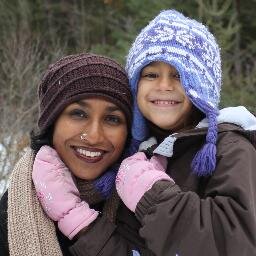 Shaaren Pine was a newborn when she was brought to Mother Theresa’s Missionaries of Charity in New Dehli in 1975. She would later be adopted by a non-South Asian family in the United States. Today Shaaren is a mom to her own biological daughter and says her journey through motherhood has been significantly impacted by her own childhood story, or lack thereof.
Shaaren Pine was a newborn when she was brought to Mother Theresa’s Missionaries of Charity in New Dehli in 1975. She would later be adopted by a non-South Asian family in the United States. Today Shaaren is a mom to her own biological daughter and says her journey through motherhood has been significantly impacted by her own childhood story, or lack thereof.
We first interviewed Shaaren about her story here where she shared her personal story of being a ‘lost adoptee’. In part two of our series with Shaaren we share her perspective on being a mother and parenting as an adoptee.
What emotions did you go through when you first found information? Did you act on them?
I was elated when I first started finding information. I sent my 23andMe results to other people doing studies or research and they were able to narrow down my genes to Southern India.
All my life I had been reluctant to embrace “Indian culture” because India is so populous, so large, and so diverse. If I latched onto things here and there I felt that I could be exposed as a fraud. It’s funny, really – even though being adopted is a trauma that happened to me, I felt immense shame and guilt at not knowing anything about my roots.
I had become obsessed with henna (mehndi) several years before and I think it’s because it’s such a global tradition, and I didn’t have to commit to anything specific within India itself. After finding out my results, this was the first time that I thought I could do something specific regarding my lost heritage. Maybe learn Tamil? Or, embrace South Indian cuisine? I felt the culture and country had been opened up to me in a way that they never had been before.
The thing is, though, 23andMe (and other genetic analysis) has only provided the teeniest piece of information and the smallest bit of solace.
Even if I find my family, I will still never not be adopted. This loss will be mine forever and nothing can undo it.
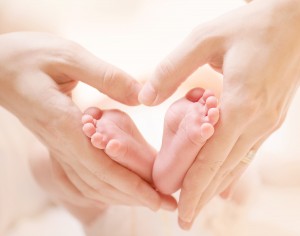
What info did you share with your husband?
I am blessed to have the absolute most supportive husband, who, from the beginning, has always been my ally. When I was losing my mind (before finding my orphanage-mates) I’m not sure I shared much with him, but I was in a very raw place. After that, though, he has known every single discovery, hardship and triumph, and has been with me every step of the way. Having lost his own mother, he can relate to my struggles, as well.
I also have shared everything about this journey with my daughter, although not always on purpose.
On the deliberate end, both she and my husband got their DNA results from 23andMe and I am happy to report that I finally have the smallest seedling of a verifiable family tree!
Even though I can’t give her much information about our family, one thing I am trying to share with her is a deep sense of pride and comfort in being brown. It’s something I struggled to learn and only did so when I was older, and for that reason, I make sure that she sees herself reflected…in every facet of her life. She sees brown everywhere – her teachers, her neighbors, her doctor, her friends. Even at her young age, I can see in her a confidence that I never possessed. I’ve always been strong in what I believed in, but not in who I am. Hopefully because of this, she has confidence in who she is.
And, on the not-so-purposeful end, sometimes the grief surrounding being an adoptee is too much to bear, and she is witness to that pain. In some ways, there is never a need to share things with my daughter. She just knows. Part of it is her intense empathy, but part of it is that, as I have said before, she shares my losses.
What have you told your daughter about your adoption? How did you choose to explain it to her?
I can’t remember what I (we) first told our daughter about my adoption, but we have always been honest with her. My husband lost his mother in 2000 and I think we have both been keenly aware, from the beginning, that our daughter lacks (besides me) any genetic female family relationships in her life, or anybody to pass down her story to her. In this sense, I think she can relate profoundly to our losses, because they are her losses, as well.
For a time, a couple years ago, she was very afraid (I have her permission to share this), that she could “be an adoptee” like I am, and we had to explain to her that what happened to me will never happen to her. Even if we died. Which is not something that most parents ever have to discuss with their young children. But, such is the life of some adoptees’ biological children. We told her, and tell her repeatedly, that she will always have roots in us, that she will always be from somewhere, and that she will never be on this planet completely alone.
That, in short, she will never be me.
They, somehow, in all their connectedness, take on our burdens. She, like many other adoptees’ biological children, worries on behalf of herself and on behalf of me. In her younger years, she was always coming up with ways that we could find our family. “Maybe Momma if we…”
Oh, the pain these children can carry with them.
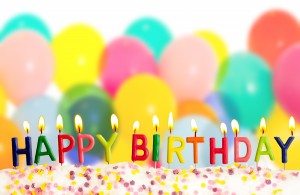 How has being an adoptee affected milestones that you celebrate with your daughter, like first birthday, first day of school, first doctor’s visit?
How has being an adoptee affected milestones that you celebrate with your daughter, like first birthday, first day of school, first doctor’s visit?
I’m not sure. Those events are weighted, definitely, but not in the ways one might think. I am reminded then, and every day, that she is literally a part of me, and I am part of her.
There are different motherhood milestones that are much more profound, that I know I am handling differently as a person of color, as a woman of color, and as an adoptee. When she questions how I came to be an adoptee, alone in this world, I know “Because my mother loved me very much” is absolutely not the truth, and therefore I refuse to say it. I can tell her honestly that I don’t know, and we can sit with that, in all of its darkness and pain, and feel it.
When she had her first experience this year with somebody making fun of her race, I was able to acknowledge her experience, tell her about my experience with ignorance and racism that same day, as well as other experiences I had when I was a girl, give her a vocabulary for these racial micro-aggressions and assaults, and allow her the minutes and hours and days and years that it takes to process such events.
When we are in white spaces, we can talk about how isolating it is, how hard it is to stand out so much, what it’s like to lack anonymity or be stared at. At 6, she herself is aware of these things, and I am so thankful that we can deconstruct these occurrences together. In so doing, I am both acknowledging the difficulty and I am not denying her experience. Sometimes, denial of experience isn’t just claiming that something didn’t happen. Sometimes, denial of experience is not being confronted with, or being aware of, the hardships others are experiencing.
What is your advice for other parents who may have been adopted and what and how they should communicate their identity with their biological children?
In the beginning, I think I was like any new parent, sharing everything I could about my daughter via every medium I came across. Gradually, though, maybe because of our increasingly public lives, I have become very aware about what is my story, what is my daughter’s story, and what it is to own one’s story. We write openly about our family dealing with my husband’s addiction, and sometimes I talk about what we have been through. Sometimes, I talk about what my daughter has been through, but only with her permission.
Same with Facebook, Twitter, and Instagram. Now, anytime I post a picture of her, I have her permission to do so. Often, she gives it, but there are just as many times when she reprimands me and tells me no. And I listen. I’m giving her permission to own her story, to be in charge of her own narrative, to have control over what is discussed. She is the hero of her story.
I think adoptee parents should communicate their identities as they see fit as I’m not in the business of telling others how to identify. I would, though, encourage adoptees to honor our stories, however much may be missing, and however hard it may be, if ever and whenever we feel strong enough to do so.
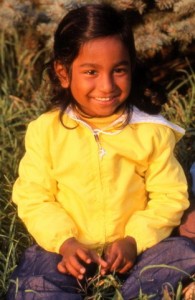
Shaaren as a young girl
I think it’s hard for many adoptees to do this. And many of us never do.
From the beginning, we give ownership of our stories to others. We were “adopted by” and we were “adopted from”. We are because somebody else wished it, and our stories began when they first saw us. It’s not necessarily somebody else’s fault that our stories begin this way, it’s the nature of never having been born.
Somehow, along the way, I ceded my narrative to others. And because of this process, I never knew that I could talk about my own story and my own opinions about adoption, because I never learned how.
So I didn’t. For almost 40 years. I’m not sure what changed.
Part of it is the honesty I’ve seen in my husband, sharing his journey about being a recovering addict and alcoholic in the book we wrote together. He is the hero of his story. I have had to learn to be brave and write about my story in that journey, however difficult it has been to put it out there.
Between my newfound adoptee support and this newfound storytelling, I think I asked myself if I could live, if I could survive without it killing me, for another 40 years, without owning my own story as an adoptee. Could I bear to have my story, or my adoption, continue to be told or claimed by other people?
And my answer, finally, is no.
I am the hero of my story.


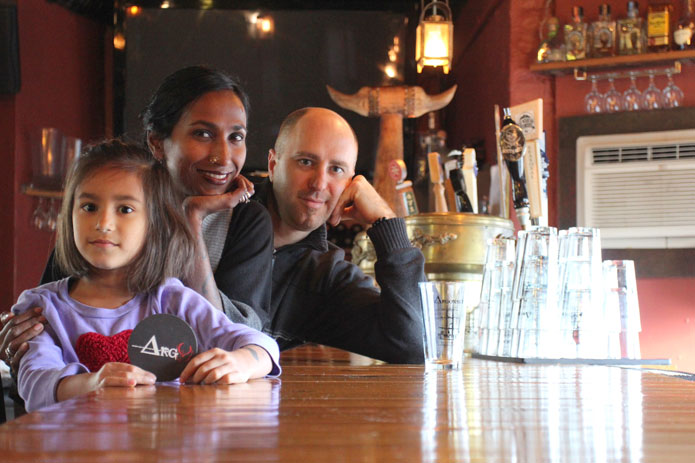
There are no comments
Add yours